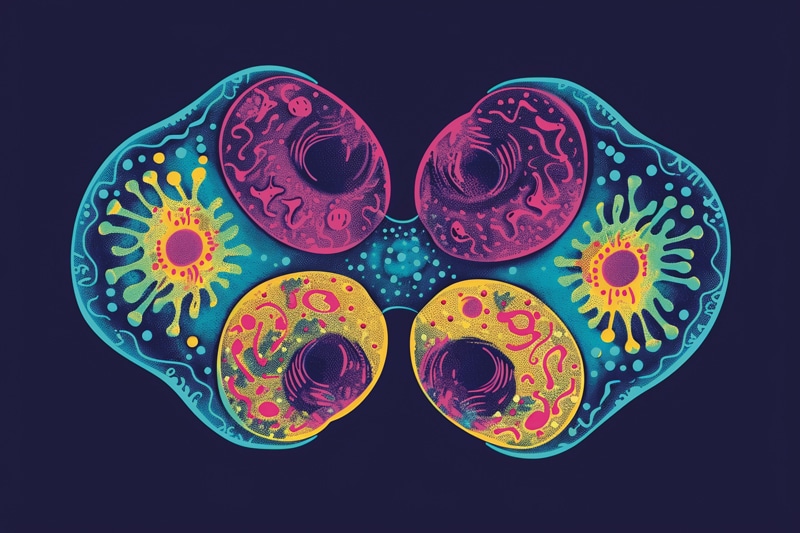An Orchard Invisible

Un texte de Sarah Cobb
Paru dans le numéro Été/Summer 2025
Publié le : 10 juin 2025
Dernière mise à jour : 10 juin 2025
The best we can do is teach the next generation manners and how to be the best version of their flawed selves.
When I birthed my third baby, the midwife urged me on, “push, push,” then suddenly, “DON’T PUSH!” The umbilical cord was wrapped around the baby’s neck, three times. “Oh boy,’ the midwife said, ’this one’s got personality.” I didn’t get it. “She felt the resistance as she turned the wrong way. And yet she continued to turn. Three times. She will be a force.” And she was. And she is. I am convinced she is exactly who she was the moment her cells began dividing.
Genetics 101 will tell you that a good look at your parents’ eyes will give you a clear picture of what colour yours will be. If your parents are both “vertically challenged,” you will probably not be a giant (unless your parents were undernourished as children). In fact, you can probably pinpoint the source of most of your anatomy by looking at your parents or their parents—mum’s hair and nose, dad’s forehead and bum. And these things are decided the moment the sperm and ovum got acquainted. Why is it, then, that when it comes to emotional or mental health, we are not so quick to accept it as an inheritance?
When it comes to anxieties and fears or biases, we instead tend to point the finger. You taught me this. You made me feel this. If you had done something about this earlier, I wouldn’t be this way. A bit like blaming the person who gave you a cold—as though they’d created the virus and weren’t merely the transmitter. Your parents also inherited those traits (or some form of them). It is, after all, also THEIR first time on the planet. If you’re lucky, your parents will have had the means and perhaps the help to adapt/overcome/tackle some of the less helpful personality traits you have in common. If you’re very lucky, they will have had some help and learned the language to talk about their feelings and yours in order to share that knowledge. And if you’re even luckier, their parents will have been open and self-aware enough to get yours started on that journey early enough to make a difference. Ultimately, it’s about coping with the cards you are dealt and trying hard not to slip any new jokers to your kids.
My mother had had three children by the time she had me so she’d had a bit of practice but I had three and I can tell you that what I learned with number one had almost no bearing on how to deal with number two OR number three, apart from the knowledge that one bad feed didn’t mean they’d starve or that letting them cry for a few minutes while I gathered my frayed wits wasn’t going to turn them into sociopaths. The gifts of my mum’s red hair and my grandmother’s lovely singing voice were counterbalanced by an annoying predisposition to OCD and my oh-so-helpful ADHD. Sadly, we don’t get to pick what we hand on. The best we can do is teach the next generation manners and how to be the best version of their flawed selves.
It’s true that the apple doesn’t fall far from the tree. As the tree, I believe that who my kids have more to do with who I am and less to do with what I did or didn’t do. The wind may shift them. A steep hill may take them away from me. A wandering grazer may move them even further afield. I only hope that, as I watch them in awe wherever they go, that they look back at their tree with compassion—as I try to do with mine.
Sarah Cobb

